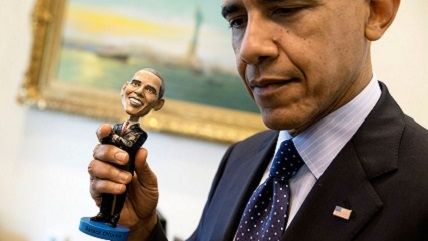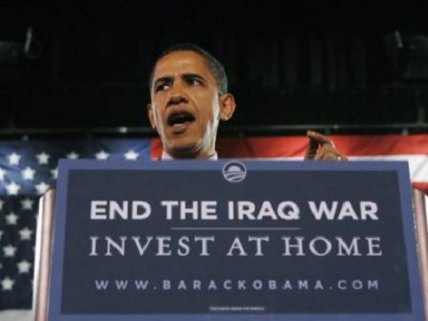As ISIS Threats to U.S. Get Louder, Where Are Arab Allies?


The Obama administration is hashing out its three-year war strategy against the Islamic State (a.k.a. ISIS) – airstrikes, funds for moderate rebel forces, and (maybe) ground troops – but there's a big snag: nearby Arab governments aren't making strong commitments to join the fight that almost exclusively affects their region.
From the Los Angeles Times:
President Obama wants to see more specific pledges from allies to join and help pay for the military operation against Islamic State militants before he will give final approval to the Pentagon's war plan, Gen. Martin Dempsey, the chairman of the Joint Chiefs of Staff, told reporters. …
"The president has not yet approved the campaign plan in part" because we have not yet completed our work of building the coalition, especially of Arab nations, Dempsey said. "I think that would be the point at which the campaign plan would go into its next phase." …
Two major U.S. allies in the region, Saudi Arabia and Qatar, have said they support the operation against Islamic State, but they have so far been ambiguous in public about how they intend to contribute, other than to assist in training Syrian rebels to take on the militants. Turkey, another key regional power with a powerful military, also has said little about whether it intends to join the fight.
Because all three are nations are led by Sunni Muslim governments, their contributions would be particularly helpful undermining ISIS leaders, who claim to be true Sunni believers trying to establish a caliphate, and dissuading other Sunnis from joining ISIS.
Iran, which is dangerously close to the action, is fighting the Islamic State, but not in a way that much benefits U.S. goals. Iran is backing Shiite Muslim fighters who commit plenty of human rights violations, delegitimize the Baghdad government's authority, and throw a wrench in the Obama administration's hope of shaping a more inclusive political system in the country.
Foreign Affairs last week projected that bombing ISIS will annually cost the U.S. between $2.7 billion and $10 billion. Most of America's western allies, excepting France, have no intention of joining the airstrike campaign. And it's hard to blame any of them. The billions-per-year spent on bombs aren't the only cost the U.S. risks by wading deeper into what is still essentially a regional conflict.
Reuters reports that today Islamic State spokesman Abu Muhammad al-Adnani called Obama "a mule" and "urged [ISIS's] followers … to attack citizens of the United States, France and other countries which have joined a coalition to destroy the militant group."
It's worth remembering that propaganda with a loud bark is ISIS's style, and that the FBI, Department of Homeland Security, and House Foreign Affairs Committee leadership have all acknowledged that the Islamic State poses no credible threat to the American homeland. Trying to knock down this hornets' nest, though, when it's in Saudi Arabia's, Qatar's, and Turkey's backyard, isn't a great way of ensuring that such threats to the U.S. remain hollow.


Show Comments (49)